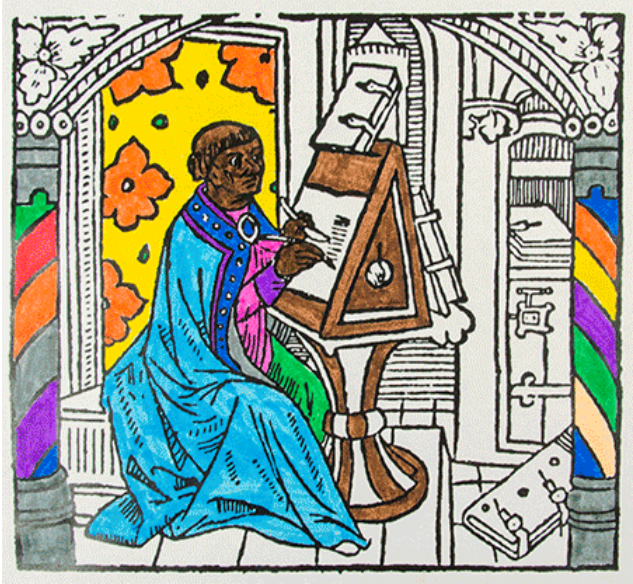
So, it’s been a year. For those of us in parts of the world where the pandemic still rages uncontained, it’s going to be an even longer winter. It may be utterly trivial to speak of silver linings when it comes to clouds this size, but there’s no reason not to use our time wisely in quarantine, lockdown, cocooning, or whatever we’re calling it these days. For all of the enormous challenges, outrages, sorrows, and horrors of 2020, natural and manmade, we can be grateful for so many opportunities for personal growth.
“Those of us who are not sick, are not frontline workers, and are not dealing with other economic or housing difficulties” Rebecca Solnit writes, are given the task “to understand this moment, what it might require of us, and what it might make possible.” It is a moment, she says (echoing Heidegger’s ruminations on life after the dropping of the atomic bombs), in which “the impossible has already happened.”
Impossibles can be catastrophic and world changing disasters that “begin suddenly and never really end.” They can also be radical responses to disaster that open up possibilities we never imagined:
A disaster (which originally meant “ill-starred”, or “under a bad star”) changes the world and our view of it. Our focus shifts, and what matters shifts. What is weak breaks under new pressure, what is strong holds, and what was hidden emerges. Change is not only possible, we are swept away by it. We ourselves change as our priorities shift, as intensified awareness of mortality makes us wake up to our own lives and the preciousness of life. Even our definition of “we” might change as we are separated from schoolmates or co-workers, sharing this new reality with strangers. Our sense of self generally comes from the world around us, and right now, we are finding another version of who we are.
It is no exaggeration to say we have collectively witnessed the world change in a matter of a few months. Since Solnit wrote in April, we’ve had many more opportunities to meet circumstances wildly beyond our control. We are shaped by events, but how we respond, individually and together, also determines the kind of people we become.
We at Open Culture like to think we’ve contributed in some small way to our readers’ personal growth in the time of coronavirus, to their view of the world and their sense of who “we” are. Our readers responded most to messages of hope, resources for self-improvement and self-understanding, and cultural phenomenon that have become sources of delight no matter what’s going on. See our 15 top posts of 2020 below.
- Quarantined Italians Send a Message to Themselves 10 Days Ago: What They Wish They Knew Then
- Download Free Coloring Books from 113 Museums
- Use Your Time in Isolation to Learn Everything You’ve Always Wanted To: Free Online Courses, Audio Books, eBooks, Movies, Coloring Books & More
- Exquisite 2300-Year-Old Scythian Woman’s Boot Preserved in the Frozen Ground of the Altai Mountains
- Hayao Miyazaki’s Studio Ghibli Releases Free Backgrounds for Virtual Meetings: Princess Mononoke, Spirited Away & More
- Google Introduces 6-Month Career Certificates, Threatening to Disrupt Higher Education with “the Equivalent of a Four-Year Degree”
- Janis Joplin & Tom Jones Bring the House Down in an Unlikely Duet of “Raise Your Hand” (1969)
- The Names of 1.8 Million Emancipated Slaves Are Now Searchable in the World’s Largest Genealogical Database, Helping African Americans Find Lost Ancestors
- Why “The Girl from Ipanema”‘ Is a Richer & Weirder Song Than You Ever Realized
- Watch the Rolling Stones Play “You Can’t Always Get What You Want” While Social Distancing in Quarantine
- Bill Murray Explains How He Was Saved by John Prine
- The Story Behind the Iconic Photograph of 11 Construction Workers Lunching 840 Feet Above New York City (1932)
- The Grateful Dead’s “Ripple” Played By Musicians Around the World (with Cameos by David Crosby, Jimmy Buffett & Bill Kreutzmann)
- Old Book Illustrations: An Online Database Lets You Download Thousands of Illustrations from the 19th & 20th Centuries
- Watch Joni Mitchell Sing an Immaculate Version of Her Song “Coyote,” with Bob Dylan, Roger McGuinn & Gordon Lightfoot (1975)
Let us know in the comments what other posts that didn’t make the list resonated with you in this time of sweeping change, and why. Perhaps it’s one more cosmic irony that the nightmarish year of 2020 also happens to be the number we use to symbolize perfect hindsight. But also tell us, readers, what did you learn this year, and how did you grow and change in ways you might have thought impossible a year ago?
Related Content:
The 150 Best Podcasts to Enrich Your Mind
1,500 Free Online Courses from Top Universities
Sign Up for Open Culture’s Free Daily Email
Josh Jones is a writer and musician based in Durham, NC. Follow him at @jdmagness.
15 Posts That Resonated with (and Restored) Open Culture Readers in 2020: What a Year It Has Been is a post from: Open Culture. Follow us on Facebook, Twitter, and Google Plus, or get our Daily Email. And don't miss our big collections of Free Online Courses, Free Online Movies, Free eBooks, Free Audio Books, Free Foreign Language Lessons, and MOOCs.
from Open Culture https://ift.tt/3hsDRYm
via Ilumina
Comments
Post a Comment